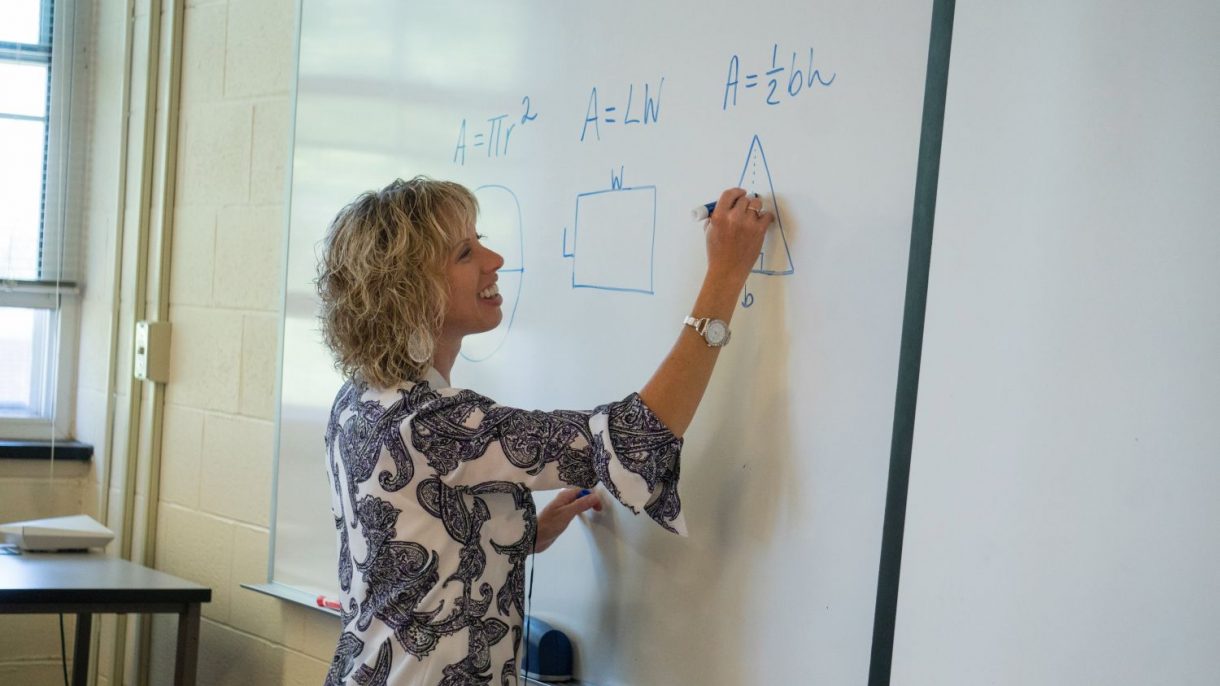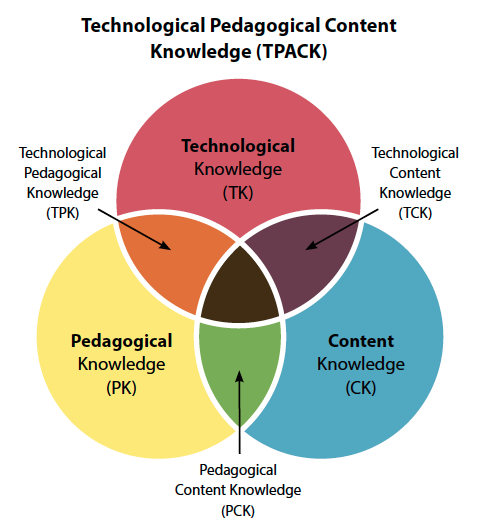
Meet Our Faculty: Dr. Cheryll Crowe Johnson

For Dr. Cheryll Crowe Johnson, professor and Chair of the Mathematics Department at Asbury University, the phrase “practice what you preach” applies as much to math as it does to ministry.
A math teacher who teaches future math teachers, Johnson’s research focuses on a framework for connecting technological, pedagogical and content knowledge (TPACK) to help develop pre-service teachers. In other words, every class is not only an opportunity to teach math to college students, but it’s also modeling creative ways to use technology and sound teaching strategies to do so.
“In one of my classes for pre-service elementary teachers, students learn various methods for teaching addition of whole numbers,” Johnson said. “The students create ‘real-world’ problems (content knowledge), model the problem using hands-on manipulatives while learning strategies to teaching the concepts (pedagogy), and employ software and online applets to guide exploration and deeper understanding of the given topics (technological).”
It’s a teaching method that requires hard work from both professor and students. Gone are the days of preparing a lecture and quietly taking notes; these classes hum with the sounds of small groups building their own apps or working with manipulatives, or small tangible items that help young students understand abstract concepts.
“For the students, the most challenging part is that it’s a really different type of learning for them,” Johnson said. “They have to adjust their thought process. A lot of them have been conditioned that we learn math by taking notes, taking an exam and repeating the cycle. Once they get over the hurdle that it’s different than how they learned, they are very receptive.
“For me, the challenge in teaching this way is that it’s a lot of work to be able to create a lesson that truly integrates the three components,” Johnson continued. “It’s easy to focus on content, and easy to focus on technology. To bring the three to the intersection point is the most challenging.”

One of the natural applications for research on TPACK is in online learning. Because the principles transfer to any area of study, not just mathematics, Johnson has been working with Asbury’s adult degree-completion program to develop ways in which the human component of education — students’ motivations, frustrations and encouragement — can be managed (pedagogy) for good learning outcomes (content knowledge) in the online environment (technology).
It doesn’t stop there, however. While Johnson has found TPACK research to be professionally engaging and personally applicable, Asbury’s emphasis on spiritual vitality brings an additional element to the TPACK model through Scripture. Whether the topic is units of measure, justice and equity in Ezekiel or the multiplication involved in feeding the 5,000, the Bible is full of examples of ways mathematics impact a life of faith.
“Our Creator is the ultimate mathematician, and it only makes senses that we could know Him better through math,” Johnson said. “We could almost add a fourth circle to the Venn diagram. The concept of infinity is strewn throughout — there are so many evidences in the Word of the topics we talk about.”
Dr. Cheryll Crowe ’03 Johnson is an Associate Professor of Mathematics. She received her Ph.D. in Education Sciences (Mathematics) from the University of Kentucky in 2008 and taught high school mathematics before transitioning to the collegiate level as a professor in the Department of Mathematics and Statistics at Eastern Kentucky University. Johnson returned to Asbury to teach in 2013. In addition to several publications, she has received two national fellowships in mathematics, presented her work across the United States, and been an invited guest panelist on KET’s Education Matters.
Originally published on August 27, 2014